Uṣul al-Tafsīr
A special advanced course designed for ʿulamā and advanced students who wish to learn advanced studies in Uṣūl al-Tafsīr. The course aims to explore some of the important and most needed topics today related to Exegesis (Tafsīr) and Quranic Hermeneutics. The course has been designed not only to deliver on the theory but to introduce practical lessons of application. A number of the more popular books on uṣūl al-tafsīr have been used to prepare this unique syllabus which is full of detailed and beneficial knowledge and areas of new study.
Missed A LIVE Session?
Don’t worry. We have got the LIVE session recorded for you.
Have any questions? Check out FAQs section.
| Course Code: | —– |
| Al Balagh Credits: | — |
|
|
|
| Duration: | 4 Months |
| Course Starting Date: | —– |
| Days: | ——– |
| Live Session Timings: | ——- |
|
|
|
| Effort: | 2 – 5 Hours / Week |
| Program: | Level – 1 |
| Prerequisite: | None |
|
|
|
| Language | English |
| Mode: | Online (Live and Interactive ) |
| Online Learning Material: | Yes ( Accessible After Course Starting Date) |
| Video Recordings: | Yes ( Available within 48hrs After the Live Session ) |
|
|
|
| Fees: | From £— /month for 4 months |
Missed A LIVE Session?
Don’t worry. We have got the LIVE session recorded for you.
Have any questions? Check out FAQs section.
Course Info
Course Starting Date:
—–
Registration Deadline:
——–
Course Fee
Pay In Full – £—–
Pay In 4 Instalments – £—-
Add-On (Optional)
Digital Certificate: Free
Printed Certificate: £10
Mentor Support (One to One): £—
AlBalagh Scholarship is available for learners who cannot afford the fee.
Main Modules
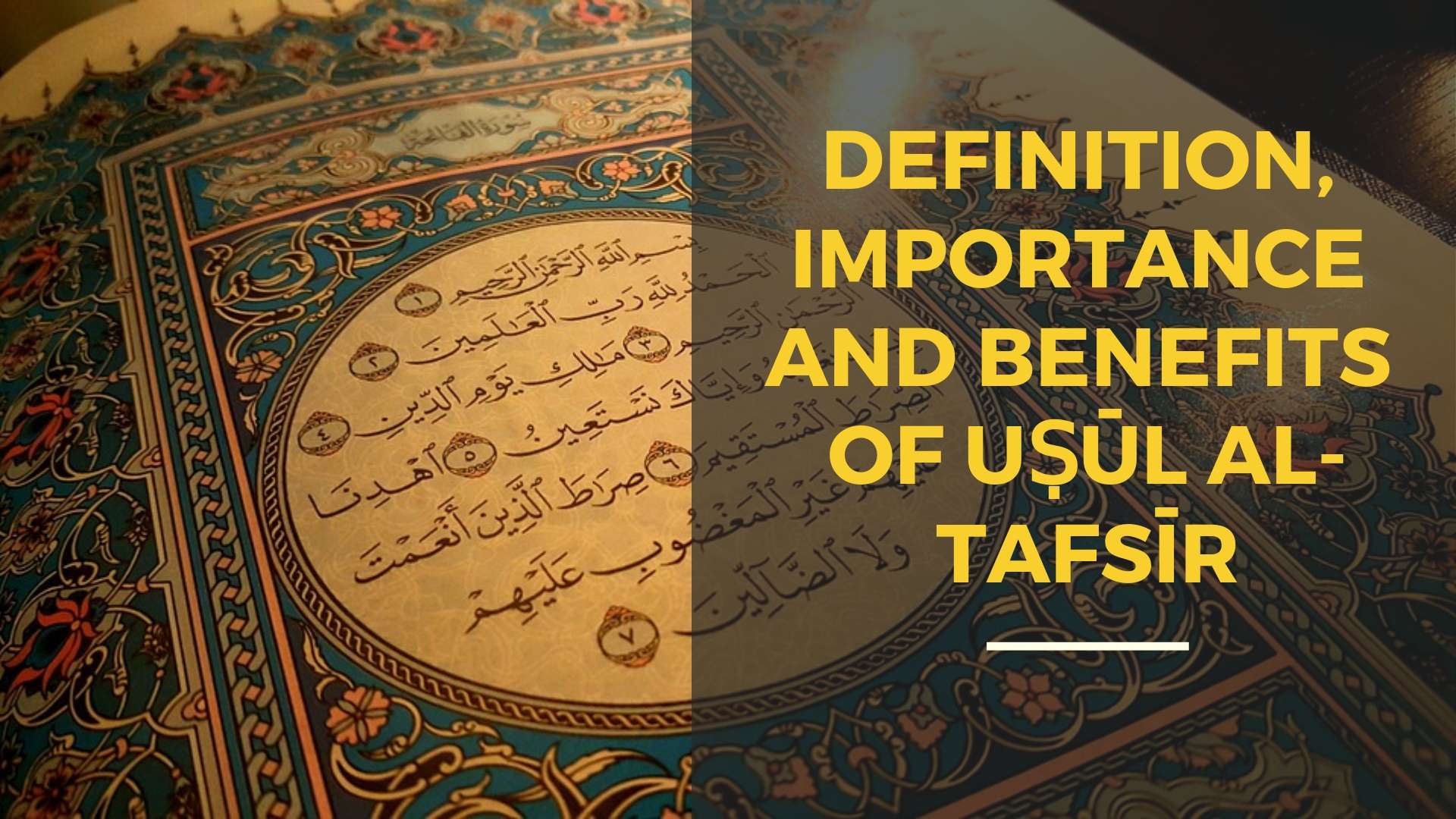
1. Definition, Importance and Benefits of Uṣūl al-Tafsīr
- Definition
- Difference between Tafsīr and Ta’wīl
- Importance of the Science
- Benefits of the Science
- Development of the Science of Tafsīr
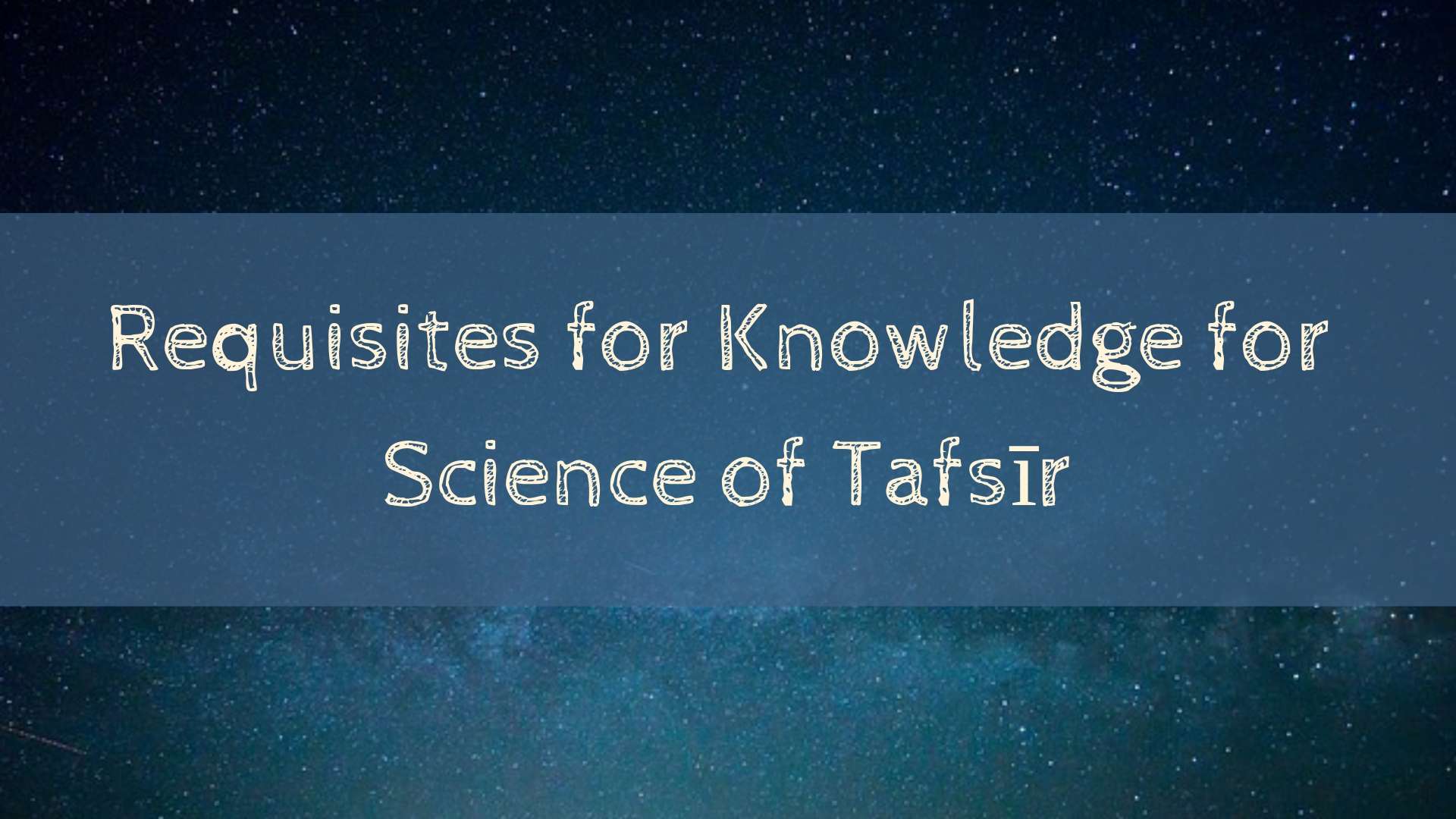
2. Requisites for Knowledge for Science of Tafsīr
- Requisite Sciences
- Conditions of a Mufassir and Ādāb
- Caution in Interpreting without Knowledge
- Popular Books and Scholars of Uṣul al-Tafsir
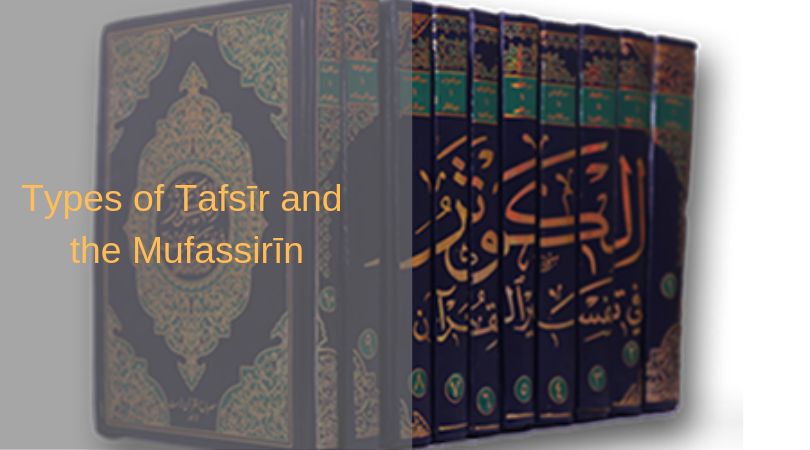
3. Types of Tafsīr and the Mufassirīn
- Different Schools of Tafsīr
- Tafsīr of the Muḥaddithūn
- Tafsīr of Muslim Scholars of Kalām
- Tafsīr of Experts in Juristic Principles
- Tafsīr of Grammarians and Lexicographers
- Tafsīr of Master Litterateurs
- Tafsīr of Skilled Reciters
- Tafsīr of Sūfis
- Tafsīr of Sects and Other Groups
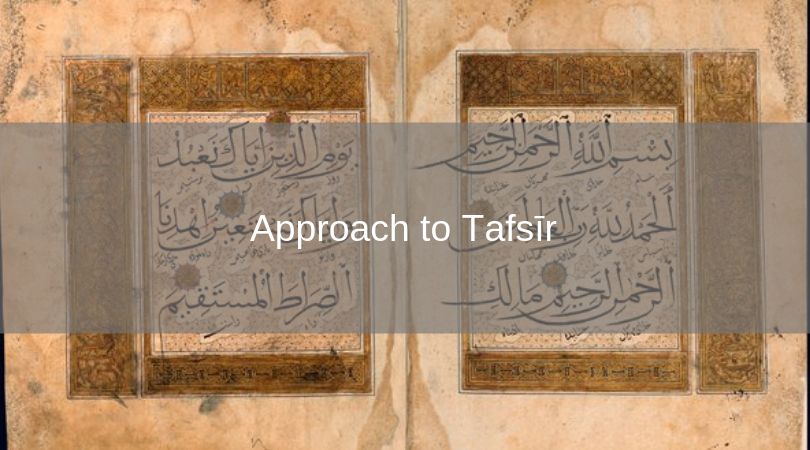
4. Approach to Tafsīr
- Tafsīr of Qurān with Qurān
- Tafsīr of Qurān with Sunnah
- Tafsīr of Qurān with Statements from the Companions
- Tafsīr of Qurān with Statements from the Tābiʿīn
- Tafsīr of Qurān through Language
- Tafsir by Judaeo-Christian Narratives
- Tafsīr of Qurān through Expert Reason and Ijtihād

5. Tafsīr of Aḥkām (Rulings)
- Definition of Tafsīr of Aḥkām
- Indications (Dalāla) of the Qurān on Aḥkām
- Different Types of Tafsīr al-Aḥkām
- Different Approaches of the Qurān in Aḥkām
- Important Books of Tafsīr on Ahkām
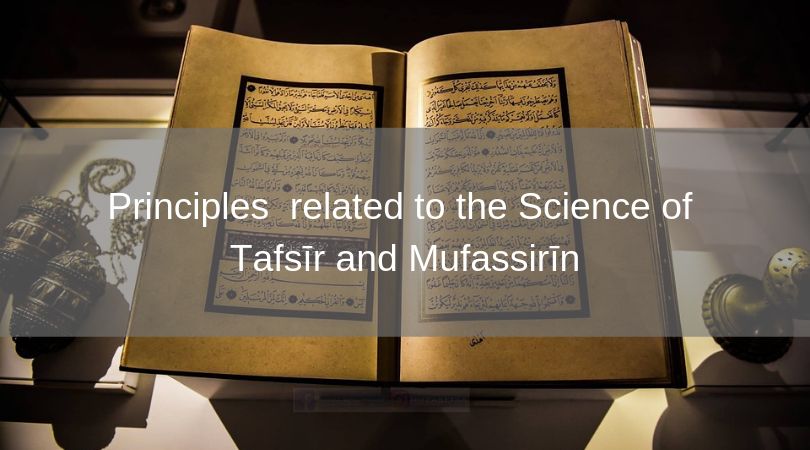
6. Principles (Qawāid) related to the Science of Tafsīr and Mufassirīn
- Definition of Qawāid
- General Qawāid
- Qawāid that relate to Preference (Tarjīḥ) between the opinions of Mufassirīn
- Reasons for Differences amongst the Mufassirīn
- Conflicts between Verses and Tafsīr
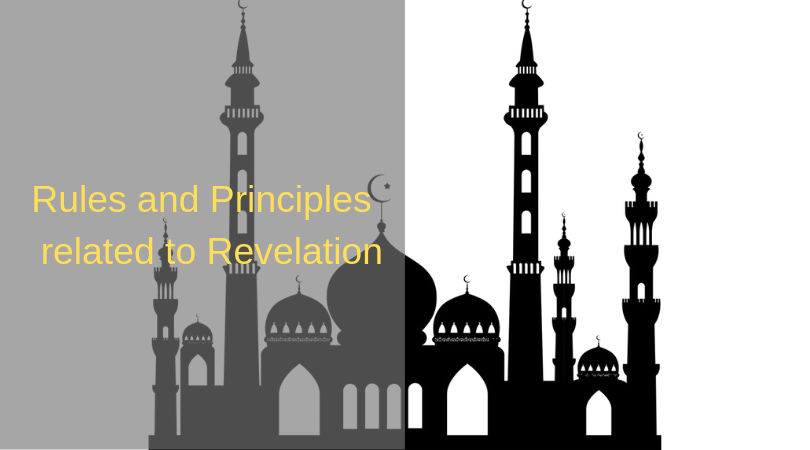
7. Rules and Principles (Qawāid) related to Revelation
- Principles related to Asbāb al-Nuzūl
- Principles related to place of Revelation (Makki, Madni)
- Principles related to Aḥruf and Qirā’a

8. Unusual Expressions of the Qurān (Gharīb and the Muʿarrab)
- Definition of al-Gharīb
- Importance of Knowledge of al-Gharīb
- Definition of al-Muʿarrab
- Differences of Opinion of
existence of Al-Muʿarrab
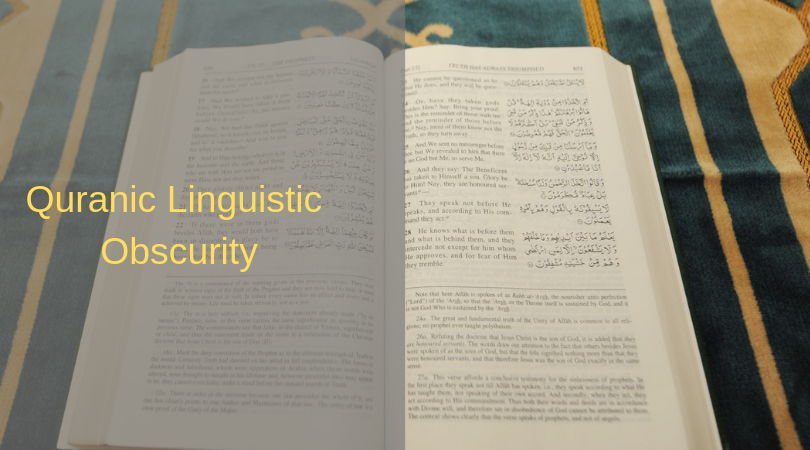
9. Quranic Linguistic Obscurity
- Omission (ḥadhf)
- Replacement or Substitution (Ibdāl)
- Definition, Approaches
and Types of Al-Sūra - Deferring and Advancing, and Remote Connection
- Additional Wording
- Al-Muḥkam, al-Mutashābih, Taʿridāt
and Kināya
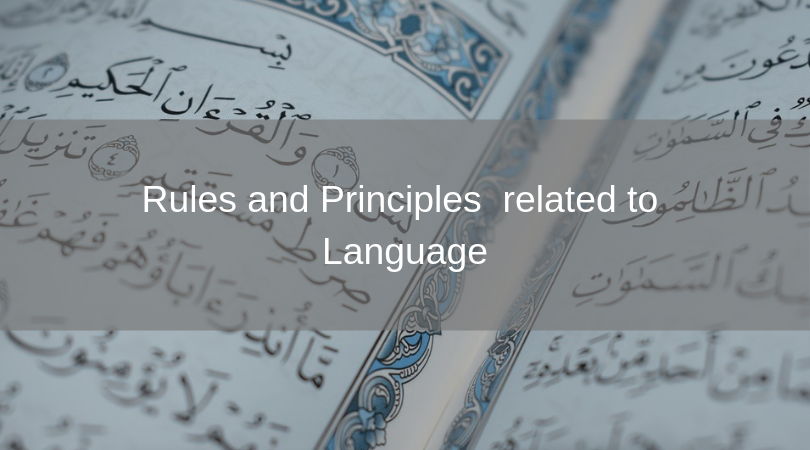
10. Rules and Principles (Qawāid) related to Language
- Al-Naṣṣ, al-Ẓāhir, al-Mu’awwal
- Al-Khafi, al-Mujmal, al-Mushkil
- Al-ʿĀm, al-Khāṣ, al-Mushtarik
- Al-Haqīqa, al-Majāz
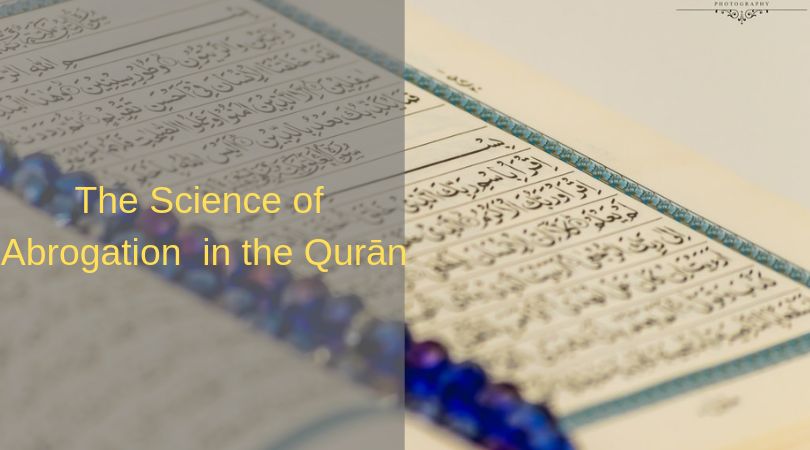
11. The Science of Abrogation (al-Naskh) in the Qurān
- Meaning of Abrogation of Earlier Scholars
- Meaning of Abrogation for Later Scholars
- Examples of Abrogation and Differences
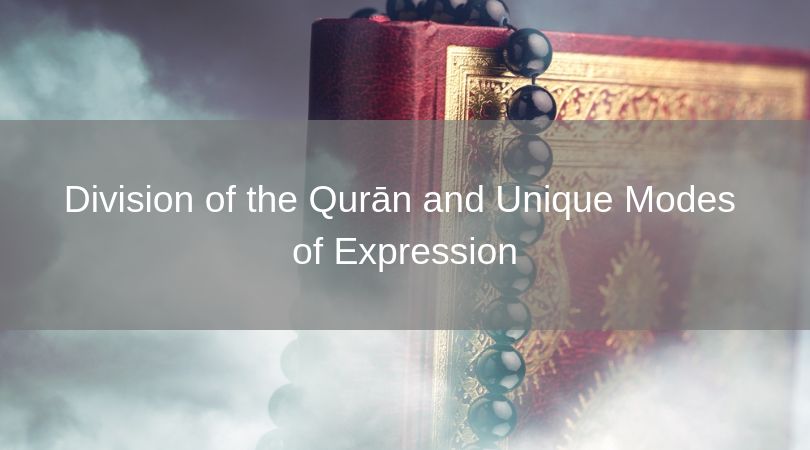
12. Division of the Qurān and Unique Modes of Expression
- Differences and Commonality between Āyāt and Verses
- Secrets of Harmonizing Long with Short Āyāt
- Modes of Expression of Sūrahs
- Meters and Rhymes
- Other Concepts of Balāgha

13. Shāh Waliullah’s Five Fundamental Sciences Contained in the Qurān
- The Science of Judgements
- The Science of Polemics
- The Science of Reminders of the Days of Allah
- The Science of Reminders of Death and What Come After
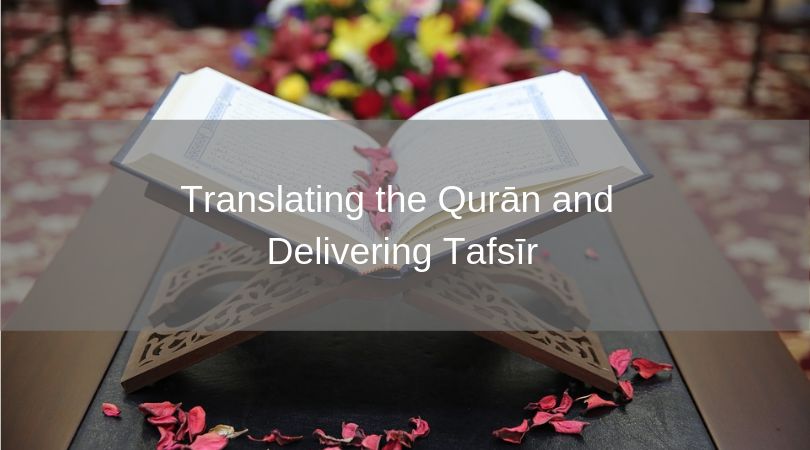
14. Translating the Qurān and Delivering Tafsīr
- Scholarly Opinions on Translation of Qurān
- Approach on How to Translate Well
- Good Translations and Bad Translations
- Types of Tafsir Delivery
- Styles of Tafsir Delivery
- How to Deliver with Maximum Impact
Course Features
Duration – 4+ Months
Professional Admin and IT Support
Live Sessions Every Sunday
Certificates
14 Live Sessions ( One / Week)
Online Assessments (Optional)
24 / 7 Access to Video Recordings and Online Learning Materials
Live Q & A
Ready?
Enrol Now
Course Overview
A special advanced course designed for ʿulamā and advanced students who wish to learn advanced studies in Uṣūl al-Tafsīr. The course aims to explore some of the important and most needed topics today related to Exegesis (Tafsīr) and Quranic Hermeneutics. The course has been designed not only to deliver on the theory but to introduce practical lessons of application. A number of the more popular books on uṣūl al-tafsīr have been used to prepare this unique syllabus which is full of detailed and beneficial knowledge and areas of new study.


Main Modules
1. Definition, Importance
2. Requisites for Knowledge for Science of Tafsīr
3. Types of Tafsīr and the Mufassirīn
4. Approach to Tafsīr
5. Tafsīr of Aḥkām (Rulings)
6. Principles (Qawāid) related to the Science of Tafsīr and Mufassirīn
7. Rules and Principles (Qawāid) related to Revelation
8. Unusual Expressions of the Qurān (Gharīb and the Muʿarrab)
9. Quranic Linguistic Obscurity
10. Rules and Principles (Qawāid) related to Language
11. The Science of Abrogation (al-Naskh) in the Qurān
12. Division of the Qurān and Unique Modes of Expression
13. Shāh Waliullah’s Five Fundamental Sciences Contained in the Qurān
14. Translating the Qurān and Delivering Tafsīr

Learning Outcomes
On completion of this course, the successful student will:
- be able to demonstrate an in-depth understanding of the history of the development of
Qur’anic exegesis - be able to demonstrate an in-depth understanding of the Qur’an through a methodical approach to its interpretation
- be able to demonstrate a familiarity with the terminology used in
Qur’anic exegesis - be able to understand and apply critically the general principles of
Qur’anic exegesis - be able to evaluate critically interpretations of the Qur’an in text and other literature
- be able to apply exegetical methods to the interpretation of the Qur’an
- be able to
recognise and evaluate critically different exegetical types - be able to demonstrate independent research,
organisation , written and oral communication skills through the presentation of a substantial work

Frequently Asked Questions
How is this online course structured?
Is it mandatory to attend live sessions?
I have doubts but I cannot attend the live session. Any other way to ask my questions?
When will the final exam be held?
The Final Exam will be held at the end of the course and will be a graded and timed exam.
Will I get notification for live sessions?
Can I download the recordings and watch it offline?
Do I get marks for watching course recordings and presentations?
I missed a live session. Can I get the video recordings?
How do I interact with my classmates?
How long will I have access to the online course?
I am facing trouble signing into my private member portal. What should I do?
Does Al Balagh Academy issue certificates?
When will the final exam be held?
What is the eligibility criteria for Scholarship?
If you are still facing issues, kindly contact our helpdesk team at [email protected].
Download MyAlBalagh mobile app from Playstore or Appstore to play or download (for offline viewing) all the completed recordings and PPT.
